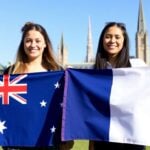Deadline: 16 October 2025
The Environment and Climate Change Canada (ECCC) is partnering with the Social Sciences and Humanities Research Council (SSHRC) on this joint initiative to help reduce plastic waste and pollution and progress towards a circular economy for plastics.
The federal, provincial and territorial governments also adopted the Canada-wide Action Plan on Zero Plastic Waste to implement the Strategy. The plan, consisting of two phases, provides tangible actions to better mitigate plastic waste and pollution in Canada. Indigenous Peoples have been integral in advocating that the instrument reflects their unique perspectives and knowledge, emphasizing the importance of:
- Protecting traditional lands, waters and ecosystems from plastic pollution
- The inclusion of Indigenous rights, environmental stewardship and sustainable practices in the instrument
Objectives
- Theme 1: Understanding the Potential Impacts of Plastic Pollution on Indigenous Peoples
- Investigating the potential impacts (e.g., social, cultural, and economic) of plastic waste and/or pollution on Indigenous Peoples. For example, investigating impacts of plastics in wildlife and/or environments of significance to Indigenous Peoples/communities; or potential impacts in terms of Indigenous rights.
- Examining Indigenous approaches to assess the potential impacts (physical, mental, emotional, spiritual, etc.) from risks of and/or exposure to plastic pollution. For example, examining indicators of biocultural value—the linkage between biophysical and cultural values, livelihoods and well-being—to Indigenous Peoples so potential impacts can be evaluated; approaches to reduce potential risks to cultural use, resistance, survival and/or continuity.
- Theme 2: Indigenous Approaches to Address Plastic Pollution
- Generating knowledge based on Indigenous science and cultural approaches to address the impacts of plastic pollution on wildlife, the environment, and potentially human health (physical, mental, emotional, spiritual, etc.). For example, producing Indigenous science, knowledge, perspectives and approaches to plastics recycling, value recovery and/or waste management; or performing interdisciplinary research on food security, human health and plastics science.
- Exploring environmental justice and Indigenous rights in relation to plastic pollution. For example, exploring Indigenous environmental justice-oriented approaches and inclusion in decision-making related to plastic pollution.
Priorities
- Applications should demonstrate that the research project prioritizes Indigenous communities by indicating that it:
- Has been designed through consultation
- Has been co-developed or initiated by Indigenous communities and responding to their needs
- Is designed to bridge, braid, and weave Indigenous science and knowledge in the project; and/or will be led or co-led by Indigenous researchers and organizations
Categories
- Two categories of research partnerships can request support:
- Existing partnerships to foster new research and/or research-related partnership activities that are distinct from the partnership’s previous/ongoing partnership activities
- New partnerships to foster new research and/or research-related partnership activities that are undertaken by partnerships in their initial stages
Funding Information
- Up to $237,500 annually for up to 2 years.
- Grants for the Indigenous Science and the Impacts of Plastic Pollution funding opportunity are valued at a maximum of $237,500 per year over two years, up to a total of $475,000.
- A one-year automatic grant extension without additional funding is also available under this joint initiative.
Eligibility Criteria
- Applicants
- Applications can be submitted by a team of researchers (consisting of one applicant/project director and one or more co-directors, co-applicants and/or collaborators). The applicant/project director prepares the application on behalf of the partner organizations of the formal partnership.
- Applicants must be affiliated with a Canadian institution or Indigenous not-for-profit organization that holds institutional eligibility before funding can be released. Researchers who maintain an affiliation with a Canadian institution that holds institutional eligibility, but whose primary affiliation is with a non-Canadian postsecondary institution, are not eligible for applicant/project director status.
- Applicants who have received a SSHRC grant of any type but have failed to submit an achievement report by the deadline specified in their Notice of Award are not eligible to apply for another SSHRC grant until they have submitted the report.
- Postdoctoral researchers are eligible to be applicants/project directors if they have formally established an affiliation with an eligible institution within five months of the grant start date, and maintain such an affiliation for the duration of the grant period.
- Students enrolled in a program of study are not eligible to apply. However, a PhD candidate is eligible to apply if they:
- Will have met all requirements for the PhD before the grant is awarded, including all course work and successful defence of their dissertation.
- Establish a formal affiliation with an eligible Canadian postsecondary institution within five months of the grant start date, and maintain such an affiliation for the duration of the grant period.
- Institutions
- Grant funds can only be administered by an eligible Canadian postsecondary institution or Indigenous not-for-profit organization. Institutions proposing to administer a grant awarded under this funding opportunity must hold or obtain institutional eligibility.
For more information, visit Government of Canada.


























